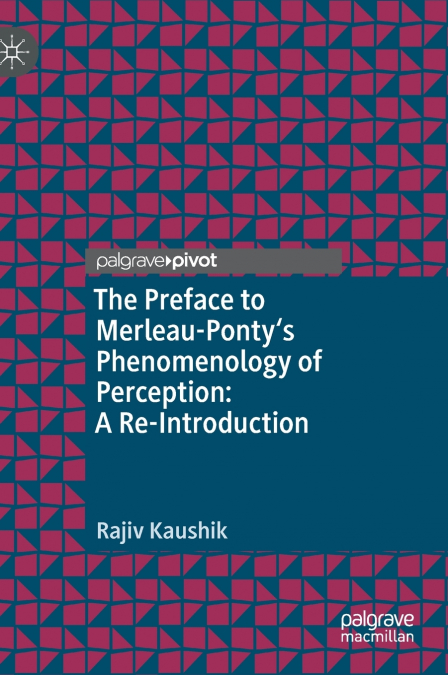
Rajiv Kaushik
This book offers a critical re-appraisal of what is perhaps Merleau-Ponty’s most widely read text, the Preface to his Phenomenology of Perception. Although open and enigmatic text, the Preface is still often used to introduce phenomenology in general and Merleau-Ponty’s work specifically to students, scholars in disciplines other than philosophy, and art practitioners. Taking advantage of the fact that many of his course notes have been posthumously published in the last few decades, this book situates the Preface to the Phenomenology of Perception in the context of Merleau-Ponty’s later work and shows how  it contains many of the threads on which Merleau-Ponty would later pull. In doing so, the book chapters elaborate key themes in the Preface: 'Phenomenology and its Paradoxes,' 'Phenomenology and its Method,' 'Phenomenology and its Incompletion,' 'Phenomenology and Non-Phenomenology.' Readers will learn about the radicality of Merleau-Ponty’s early articulation of phenomenology, how much it already suggests the profound transformation of phenomenology usually associated with his more mature work.Â